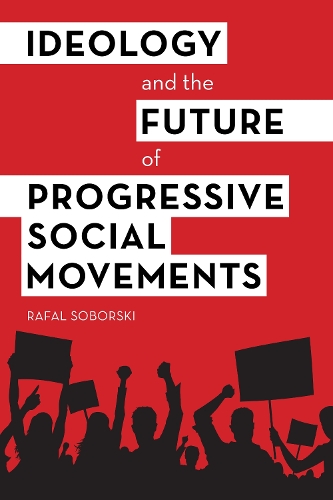
Ideology and the Future of Progressive Social Movements
(Paperback)
Available Formats
Publishing Details
Ideology and the Future of Progressive Social Movements
By (Author) Rafal Soborski
Bloomsbury Publishing PLC
Rowman & Littlefield International
1st March 2018
United Kingdom
Classifications
Professional and Scholarly
Non Fiction
Political activism / Political engagement
320.5
Physical Properties
Paperback
130
Width 149mm, Height 231mm, Spine 10mm
204g
Description
The last decades have witnessed a steady increase in popular discontent with prevailing neoliberal approaches to economy, policy and society. And yet neoliberalism remains dominant, even in the context of the ongoing financial crisis. The anti-neoliberal movement seems disorientated. Typical explanations of this current contradicatory situation highlight that anti-neoliberal movements are unwilling to commit to a policy programme, enact effective political tactics, or challenge state institutions. This book argues that a more deep-seated problem lies at the heart of these deficiencies: how the movement approaches the role of ideology in political action. Reflecting a widely-held belief that ours is a post-ideological age, ideology has been marginalized or altogether rejected by the majority of the movements activists and intellectuals. The dismissal of ideology has hindered the politics of resistance and it now becomes clear that a firm ideological vision is what activists urgently require to defy neoliberal domination. This book shows the useful nature of ideology, by exploring continuities between current anti-neoliberal positions and well-known past ideological arguments that changed the world.
Reviews
This illuminating and meticulous study explores a crucial political dynamic of recent decades. Progressives rallied to regain lost ground to the onslaught of neoliberalism, while accepting neoliberalisms spurious disparagement of the power of ideology. Employing a rich range of sources, the author produces a timely riposte to those who doubt the centrality of ideology to political activism and to popular, grassroots movements. -- Michael Freeden, Emeritus Professor of Politics, University of Oxford
This book is important and admirably incisive. Rafal Soborski makes a compelling case for his claim that progressive, anti-neoliberal social movements have impaired their own effectiveness by neglecting to underpin their action with positive ideological development. Although his aim is primarily diagnostic, the author offers valuable pointers to the potential construction of an inspiring, pluralistic ideological framework for the future. -- Christopher Flood, Emeritus Professor of Politics, University of Surrey
An important critique of anti-neoliberal movements since the financial crisis and austerity. Soborski questions the populist, prefigurative and networking resistancethat has generated much excitement. For academics, students and a wider audience interested in change, a concise, readable and thought-provoking case forputting ideology back at the centre of left politics. -- Luke Martell, Professor of Political Sociology, University of Sussex
Rafal Soborskis critical analyses of current ideological profiles are timely and include the shortcomings of activism against neoliberal capitalism. His analyses are pertinent, thoughtful and forward-looking. A constructive contribution and a good read. -- Jan Nederveen Pieterse, Mellichamp Professor of Global Studies and Sociology, University of California
In Ideology and the Future of Progressive Social Movements, Rafal Soborski provides a punchy and passionate critique of the post-ideology approach of progressive social movements from an anti-neoliberal perspective. While questioning whether all grassroots protest movements have abandoned ideology to the extent described in the book, Luke Martell finds this a distinctive and stimulating contribution recommended to all those interested in social change. In this book, Soborski brings a healthy dose of scepticism about anti-neoliberalism and an important antidote to excitement over recent counter-movements, making telling points. His criticisms apply well to some intellectuals and movement strands, although Im not sure the grassroots of anti-neoliberalism all run counter to what he prescribes. The book is nonetheless a distinctive and stimulating contribution, recommended to those interested in social change: a concise, readable, heartfelt and thought-provoking case for an anti-neoliberal politics based in ideology and pursued through politics. That this is the way anti-neoliberalism needs to go, Soborski is right. * LSE Review of Books, 20 June 2018 *
Author Bio
Rafal Soborski is a Professor of International Politics at Richmond, the American International University in London.
